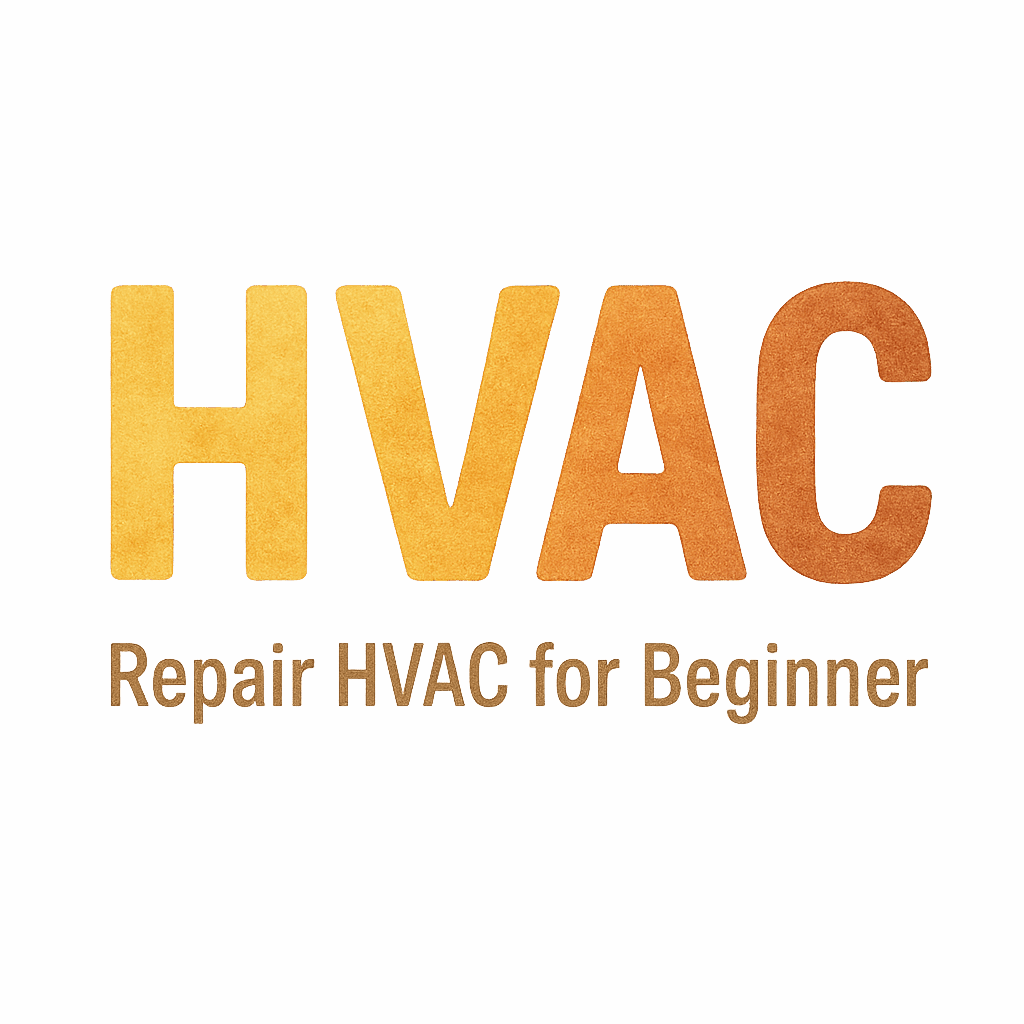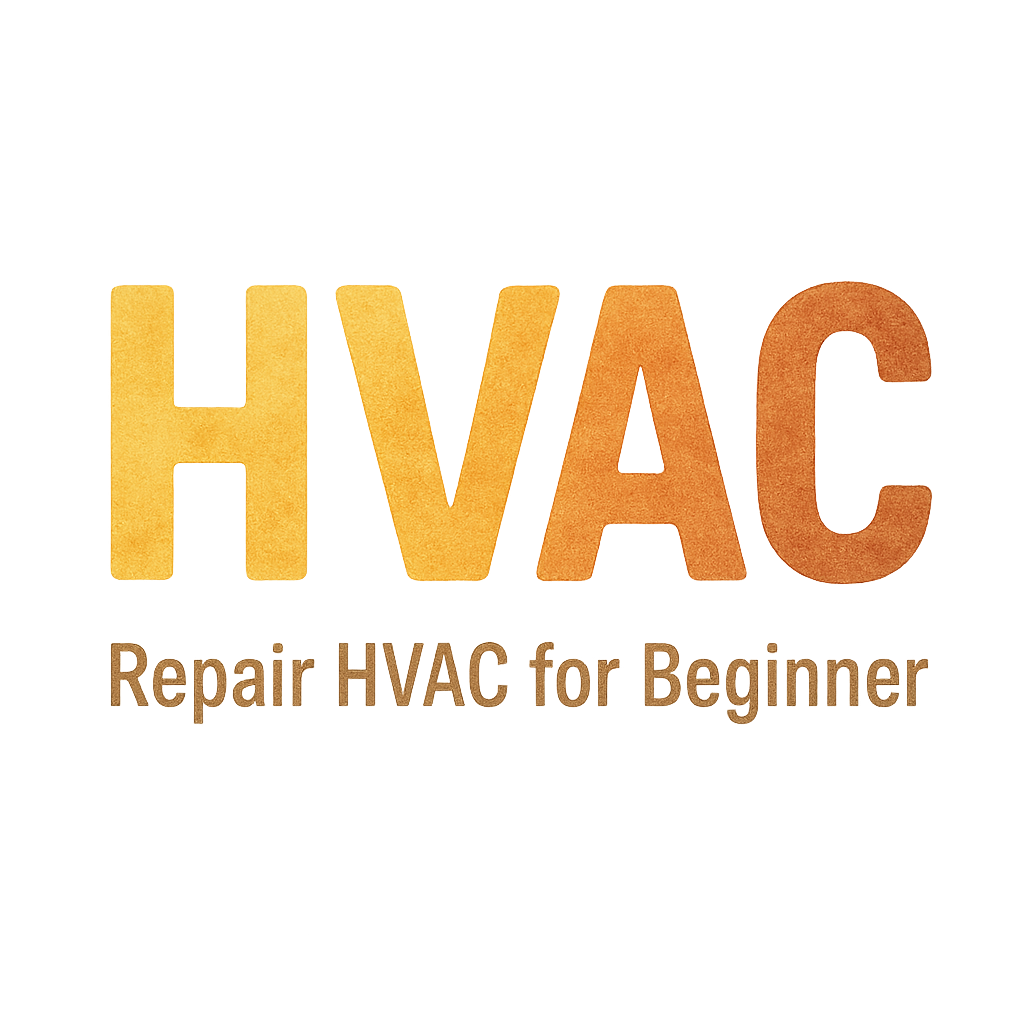Introduction
Before diving into HVAC repairs, safety should always be your number one priority. Whether you’re a professional HVAC technician or a DIY enthusiast, the importance of maintaining safety standards cannot be overstated. HVAC systems are complex, and improper handling could lead to injury, damage, or even catastrophic failure of the system. This article outlines 8 essential safety tips you should follow before starting any HVAC repairs, ensuring both your safety and the system’s optimal performance.
For more general guidance on HVAC basics for beginners, check out our dedicated guide.

Why Safety Matters in HVAC Repairs
HVAC systems are integral to our daily comfort, but they involve electricity, refrigerants, and intricate mechanical components. Each of these factors presents unique risks. Without proper precautions, you expose yourself to hazards such as electrical shocks, chemical exposure, burns, or even severe injury from mishandling heavy equipment.
Common HVAC Hazards
- Electrical hazards: HVAC systems are powered by electricity, and working on them without proper isolation can lead to electrical shocks. Learn how to safely troubleshoot electrical issues with our HVAC system diagnosis guide.
- Chemical exposure: Refrigerants and other chemicals used in HVAC systems can be toxic if mishandled. Explore safety precautions in our refrigerant handling section.
- Fire risks: Overheating or failure to properly disconnect power can lead to fires.
Consequences of Neglecting Safety
Ignoring these safety protocols not only jeopardizes your health and safety but can also cause extensive damage to your HVAC system, leading to expensive repairs or replacements.
1. Always Turn Off the Power Supply
The first and most crucial step before starting any HVAC repair is to turn off the power supply. This ensures you won’t be exposed to any electrical hazards while working on the system.
Why Power Shutdown is Crucial
Electrical accidents, such as electrocution or sparks, can occur if the system is left powered on. Even when working on parts not directly connected to power sources, you could still encounter live wires or short circuits.
How to Safely Disconnect Power
- Locate the power switch or circuit breaker and turn it off before proceeding.
- Double-check that all electrical components are powered down before touching any part of the system.
If you’re unsure of how to properly shut down power to your HVAC system, refer to our troubleshooting and repair guide.
2. Wear Appropriate Personal Protective Equipment (PPE)
Personal Protective Equipment (PPE) is designed to keep you safe while performing HVAC repairs. Make sure to invest in quality protective gear.
PPE Essentials for HVAC Technicians
- Gloves: Protect your hands from sharp edges and chemicals.
- Safety goggles or face shields: Prevent dust, debris, and chemical exposure to your eyes.
- Non-slip footwear: Ensure you maintain stability while working in potentially slippery environments.
Importance of Gloves, Goggles, and Face Shields
These protective items are a must when dealing with HVAC systems. Gloves provide a physical barrier, while goggles shield your eyes from flying particles and chemicals. Face shields offer additional protection when working with refrigerants or when handling tools that could cause sparks.
For more on protective equipment, refer to our detailed guide on safety gear.
3. Use Proper Tools and Equipment
Working with the right tools ensures not only efficiency but safety as well. Using improper or damaged tools could result in injury or damage to the HVAC system.
Importance of Using the Right Tools
Each HVAC task requires specific tools, and using a substitute could lead to ineffective repairs or accidents. Always use tools that are designed for the task at hand, such as wrenches, screwdrivers, and pipe benders.
Ensure Tools are in Good Condition
Before starting, inspect your tools for any signs of wear, such as rust or loose handles. Broken or defective tools can cause accidents and hinder your progress.
You can find a list of essential HVAC tools and equipment to help you get started.
4. Understand the HVAC System
Before beginning any repair work, it’s crucial to understand how your HVAC system works. Familiarity with the system allows you to anticipate potential problems and avoid common mistakes.
Know Your HVAC System Inside and Out
Every HVAC system is different. Ensure you understand the layout, key components, and function of the system you are working on.
Read the Manual and Schematics
Always consult the manufacturer’s manual and system schematics before proceeding. These documents provide valuable insight into the system’s wiring, layout, and troubleshooting tips. For more on basic HVAC knowledge, visit our HVAC basics guide.
5. Stay Aware of Potential Chemical Hazards
HVAC systems may contain hazardous chemicals such as refrigerants, which can be toxic or flammable. Understanding how to safely handle and dispose of these substances is vital.
Common Chemicals in HVAC Systems
Refrigerants like R-22 and R-410A are commonly used in HVAC systems. Mishandling these can result in exposure to toxic gases or even fires. To learn more about refrigerants and related risks, check our filter problems and refrigerant guide.
How to Handle Chemicals Safely
- Always follow safety guidelines for handling refrigerants.
- Use appropriate tools and containers for refrigerant recovery and disposal.
- Wear chemical-resistant gloves and goggles when handling refrigerants.
6. Be Cautious with Refrigerants
Refrigerants are essential to the cooling process but can pose significant risks if not handled correctly. Make sure you take the necessary precautions when working with these substances.
What Are Refrigerants?
Refrigerants are chemicals that absorb and release heat within the HVAC system. While effective for cooling, they can be dangerous if mishandled.
Proper Handling and Disposal of Refrigerants
Use a certified refrigerant recovery machine to safely recover and dispose of refrigerants. Avoid releasing refrigerants into the atmosphere as it contributes to environmental harm. For more details, see our refrigerant handling and disposal guide.
7. Work in a Well-Ventilated Area
Proper ventilation is essential when working on HVAC systems, especially if you are dealing with chemicals or refrigerants.
Why Ventilation is Key in HVAC Repairs
Adequate ventilation helps remove hazardous fumes and ensures that fresh air is circulating. Poor ventilation increases the likelihood of exposure to toxic gases or chemicals.
How to Ensure Proper Ventilation
If possible, work in an open area or ensure that your workspace is well-ventilated. Consider using fans or air filtration systems to enhance airflow.
8. Don’t Skip the Maintenance Checklist
Having a maintenance checklist is a great way to stay organized and ensure that all necessary safety protocols are followed.
Why a Checklist is Critical for HVAC Safety
A checklist acts as a reminder for each important step, from powering off the system to ensuring that refrigerants are safely handled.
What to Include in Your Maintenance Checklist
- Turn off power supply.
- Inspect tools and PPE.
- Verify refrigerant levels and recovery procedures.
- Confirm the ventilation system is working.
Check our HVAC maintenance checklist for a thorough step-by-step guide.
Conclusion
Safety is paramount when performing HVAC repairs. By following these eight essential safety tips, you protect not only your well-being but also ensure that your HVAC system continues to function optimally. Always remember to stay cautious, use proper tools, and never underestimate the potential hazards involved. HVAC repairs can be complex, but with the right approach, you can complete them safely and efficiently.
7 Unique FAQs About HVAC Safety
1. Why is it important to turn off the power supply before working on HVAC systems?
Turning off the power supply prevents electrical hazards and protects you from the risk of electrical shocks.
2. What kind of PPE should I wear during HVAC repairs?
You should wear gloves, safety goggles, a face shield, and non-slip footwear for maximum protection.
3. Can I use any tools for HVAC repairs?
No, using the right tools designed for specific HVAC tasks is crucial for safety and effective repairs. Visit our tools and equipment guide for more information.
4. What are the common chemical hazards in HVAC systems?
Refrigerants and cleaning chemicals used in HVAC systems can be toxic or flammable if mishandled.
5. How should I handle refrigerants during repairs?
Refrigerants should be recovered using proper equipment and disposed of according to environmental guidelines.
6. Why is good ventilation necessary when repairing HVAC systems?
Proper ventilation ensures the removal of harmful fumes and keeps you safe from inhaling toxic gases.
7. Should I follow a checklist for HVAC repairs?
Yes, a checklist helps ensure all safety measures are followed, reducing the risk of accidents during repairs. For a detailed checklist, check out our HVAC checklist section.


